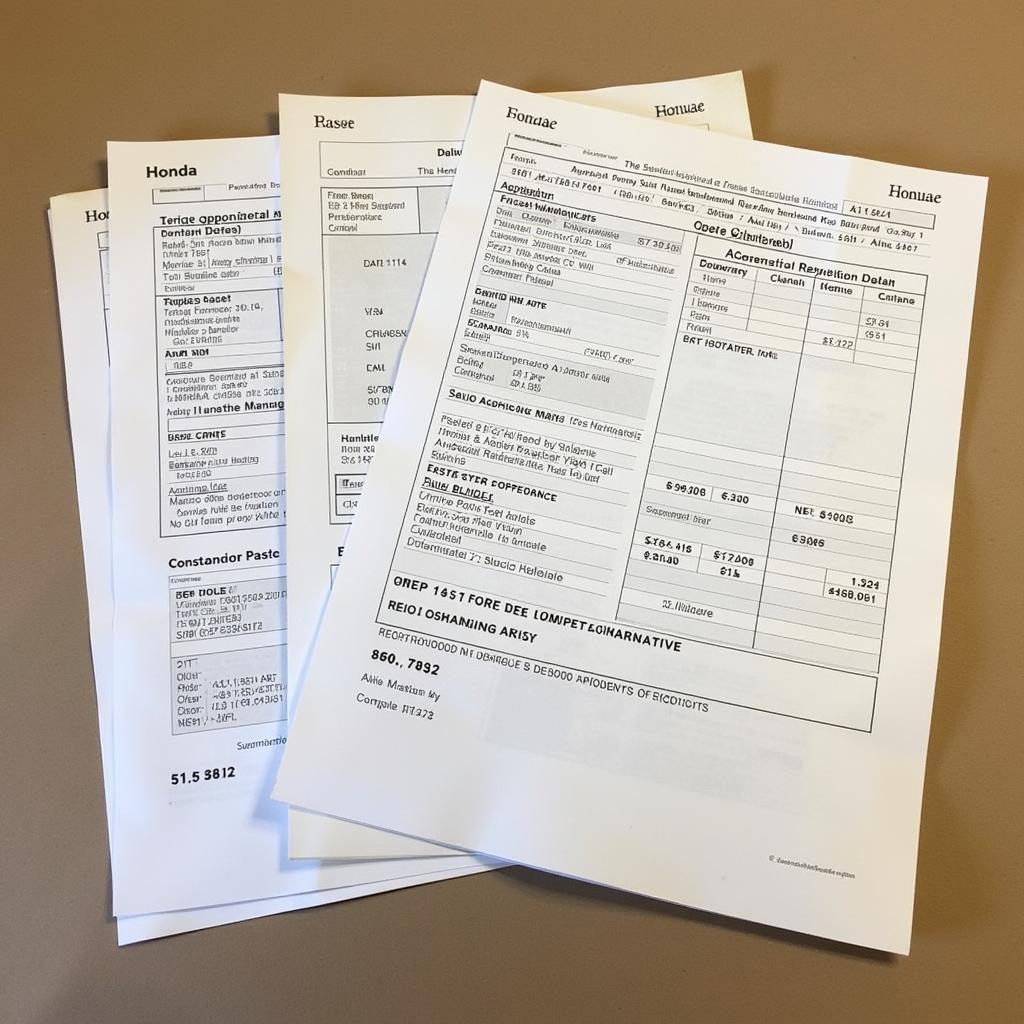How Long Does a Car Service Normally Take?
Knowing how long a car service normally takes is crucial for planning your day. Several factors influence the timeframe, from a simple oil change to more complex repairs. Let’s explore these factors and give you a clearer idea of what to expect.
What Determines Car Service Duration?
The length of a car service depends on the type of service required. A routine oil change can be completed within an hour, while more involved procedures like brake pad replacements or engine diagnostics can take several hours or even a full day. how to service car injectors can take a few hours depending on the car model and the extent of cleaning needed.
Routine Maintenance vs. Major Repairs
Routine maintenance, such as oil changes, tire rotations, and fluid top-offs, are typically quick and straightforward. These services are designed to be efficient and often take between 30 minutes to an hour. Major repairs, on the other hand, involve more complex diagnostics, part replacements, and specialized labor, often stretching the service time to several hours or even days, depending on the issue’s complexity and parts availability.
Impact of Parts Availability
If the required parts are readily available, the service time will be shorter. However, if parts need to be ordered, it can add a significant delay to the overall repair time. This is especially true for less common or imported vehicles.
How Long Does a Basic Service Take?
A basic car service, which usually includes an oil change, filter replacement, and a general inspection, typically takes between 30 minutes to an hour. This timeframe can vary slightly based on the car model and the specific service center.
Quick Services: Oil Changes and More
Some services, like oil changes and tire rotations, are designed for speed and efficiency. Many service centers offer “express” options for these routine tasks, allowing you to be in and out in under an hour.
Time-Consuming Services: Brakes, Transmission, and Engine Work
Brake replacements, transmission repairs, and engine work are considerably more time-consuming. These services may require specialized tools, extensive diagnostics, and intricate procedures. Be prepared to leave your vehicle at the service center for a significant portion of the day or even overnight, depending on the extent of the work.
Factors Affecting Service Time: Beyond the Basics
Beyond the type of service, several other factors can influence the overall time required. The mechanic’s workload, the availability of specialized equipment, and unforeseen complications can all contribute to delays.
Mechanic Workload and Scheduling
A busy service center might have a backlog of appointments, which can impact how quickly they can attend to your vehicle. Scheduling your service in advance can often minimize wait times.
 Scheduling a Car Service Appointment
Scheduling a Car Service Appointment
Unexpected Issues and Diagnostics
Sometimes, during a routine service, a mechanic may discover an unforeseen issue that requires further investigation and repair. This can significantly extend the service time. For instance, can you get your car serviced when it’s raining? While most services can be performed in the rain, certain issues might be harder to diagnose or fix in wet conditions, potentially adding to the service time.
“Proper diagnostics are crucial for accurate and efficient repairs,” says John Smith, Senior Automotive Technician at Smith Automotive. “Taking the time to thoroughly assess the problem often saves time in the long run by avoiding unnecessary repairs.”
Conclusion
Understanding how long a car service normally takes allows you to plan your schedule effectively. While routine maintenance is generally quick, more complex repairs require more time. Factors like parts availability, mechanic workload, and unexpected issues can all play a role in the overall duration. By considering these factors, you can be better prepared for your next car service appointment.
FAQ
- How long does an oil change take? Typically 30 minutes to an hour.
- What is included in a basic car service? Usually an oil change, filter replacement, and a general inspection.
- How can I minimize car service wait times? Scheduling an appointment in advance is recommended.
- What happens if the mechanic finds an unexpected issue? Further diagnostics and repairs might be necessary, increasing the service time.
- Does the car model affect the service time? Yes, some car models require more specialized procedures, potentially impacting the duration.
- How does parts availability affect the service time? If parts need to be ordered, it can significantly delay the repair process.
- Can I wait at the service center during the service? Many service centers offer waiting areas with amenities.
Common Car Service Scenarios and Estimated Times
| Service Type | Estimated Time |
|---|---|
| Oil Change | 30-60 minutes |
| Tire Rotation | 30-60 minutes |
| Brake Pad Replacement | 1-3 hours |
| Engine Diagnostic | 1-4 hours |
| Transmission Repair | 4-8 hours or more |
Further Reading and Resources
For more information on specific car service procedures, please visit our website. We offer detailed guides on topics like injector servicing and maintenance in various weather conditions.
“Always consult your car’s owner’s manual for recommended service intervals,” advises Maria Garcia, Lead Mechanic at Garcia Auto Repair. “This helps ensure your vehicle remains in optimal condition.”
Need assistance with your car service? Contact us via WhatsApp: +1(641)206-8880, Email: [email protected] or visit us at 456 Oak Avenue, Miami, FL 33101, USA. Our customer service team is available 24/7.

